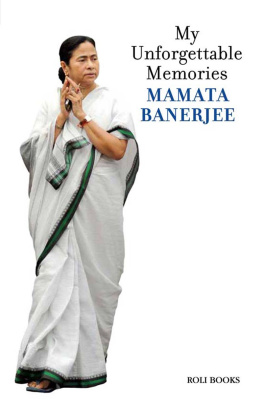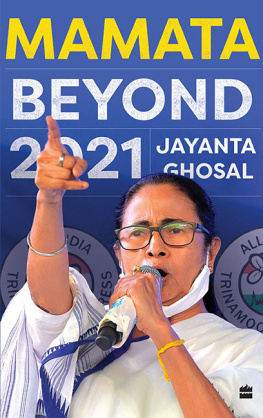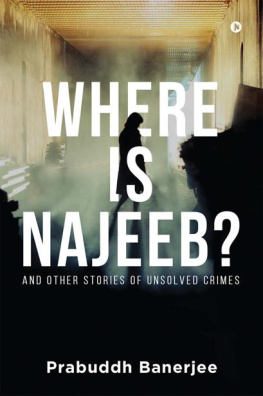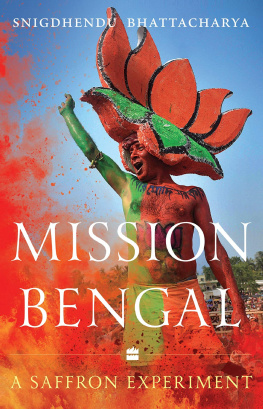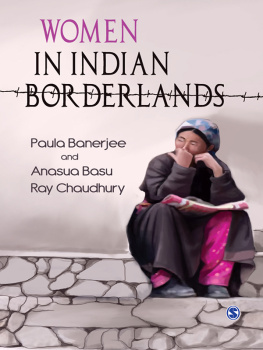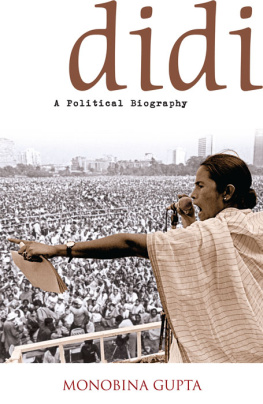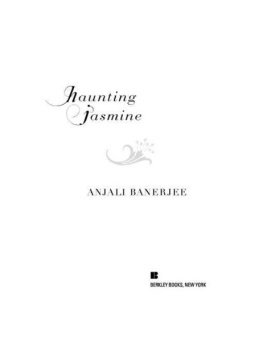ROLI BOOKS
This digital edition published in 2014
First published in 2012 by
The Lotus Collection
An Imprint of Roli Books Pvt. Ltd
M-75, Greater Kailash- II Market
New Delhi 110 048
Phone: ++91 (011) 40682000
Email: info@rolibooks.com
Website: www.rolibooks.com
Copyright Mamata Banerjee 2012
Translated from Bengali by Nandini Sengupta
All rights reserved.
No part of this publication may be reproduced, transmitted, or stored in a retrieval system, in any form or by any means, whether electronic, mechanical, print reproduction, recording or otherwise, without the prior permission of Roli Books. Any unauthorized distribution of this e-book may be considered a direct infringement of copyright and those responsible may be liable in law accordingly.
eISBN : 978-93-5194-013-5
All rights reserved.
This e-book is sold subject to the condition that it shall not, by way of trade or otherwise, be lent, resold, hired out, or otherwise circulated, without the publishers prior consent, in any form or cover other than that in which it is published.
Foreword
M amata Banerjees rise as a hugely popular leader has been a surprising and a very inspiring phenomenon in the more recent political history of the world. Her incredible personal sacrifices, a life of protest, and uncompromising struggle makes her a sister to thousands of exploited and brutalized people and a saviour to the terror-stricken masses. A populous and problem-torn part of India, West Bengal, had long been under the ruinous, long, and uninterrupted political misrule of the Communists and was slowly slipping into anarchy and destruction. Yet, its rich and inspiring history bears almost no resemblance to the morass of its present.
Mamata Banerjee catalyzed a never-before-seen public awakening in the state by mobilizing people to protest against the decades-long rule of terror, tyranny, exploitation, violence, and brutality of the state. Of course, it has taken a toll on her. She has often put her life at risk, been battered repeatedly, and fasted for twenty-six days at a stretch as part of a non-violent protest movement to earn her status as a leader of true grit with fire in her belly, and a never-say-die attitude like Mahatma Gandhi and Jayprakash Narayan. This is how she has set up Trinamool Congress and fought relentlessly for the honour and justice of Ma, Mati, Manush (mother, land, people). And this is how she has created history. She has toured the state extensively from one terror-stricken district and village to the next, talking to people, from tribals to poor farmers to factory workers, asking them about their problems, offering solutions to the extent possible, fighting for their rights, truth, and justice. That is how, and why, she knows the problems of the state like the back of her hand. Her dream has always been to liberate the people from deprivation, poverty, and terror. It is this experience that has been her biggest learning; that is how she can confidently offer solutions and suggest ways to implement them on the ground. She is unrivalled in this strength of experience at the grassroots level in the political arena.
Right from the beginning, all through her days as a fiery leader leading a life of struggle and protest, whenever she could squeeze time out of her tirelessly busy schedule, she would pen down her thoughts on life, realizations, struggles, and her terrifying experiences. These are written in her own inimitable style: simple and straight forward like the person, and rich in feeling and realization. This compilation puts together a series of extracts from different volumes of her published works in Bengali. These have been written in various stages of her life and offer glimpses of her childhood, youth, and days of struggle in her own words.
The silent revolution that she triggered in the state which led to the democratic dismantling of the thirty-four-year old Communist regime is unparalleled in Indias political history. The focused terror, brutality, and vendetta that pursued her in the past; the almost unparalleled atrocity that was unleashed on her person in an effort to establish party-cracy in the state; her ability to face-off with near-death skirmishes, stand up to the threat, win the hearts of the people, organize them, and lead them to a momentous change in Bengals political landscape makes this a riveting memoir. The memoir also sets an example of how much a simple, down-to-earth woman, can achieve armed with nothing more than integrity, mental strength, dedication, steely will, and a fearless mind. It is an amazing journey documenting on the one hand, her eye for the here and now, looking into every little detail no matter how insignificant and on the other, her occasional bursts of creative flourish, in song, poetry, and art. Finally, her untiring and relentless efforts brought about the desired change in problem-ridden Bengal. The campaigns for the panchayat, municipality, Lok Sabha, and Bidhan Sabha elections, the public support for her cause as she toured the length and breadth of the state from the hills in the north to the jungles in the centre and the sea on the extreme south, finally resulted in the victory of the people of Bengal as Ma, Mati, Manush found honour and justice with Mamata Banerjee taking oath as the chief minister in Raj Bhavan. She has not documented her journey through those hectic days, weeks and months. The next generation is looking up to her with hope for a new tomorrow, free from poverty, fear, in a democratic, livable, and liberal atmosphere.
Shuvaprasanna
Prologue
I f you count the days it works out to less than a month-and-a-half. But those were red letter days in West Bengals political calendar, heralding the end of a historic movement that has earned its players a place in the history books.
10 April 2011. Mamata Banerjee flew out from Kolkatas Race Course helipad towards Habibpur in Malda, officially kicking off her election campaign. That was the beginning. The end came on 20 May, the day she took oath as the chief minister of West Bengal in Raj Bhavan and was virtually carried by a tidal wave of supporters all the way to the State Legislative Assembly.
Elections, victory, and defeat are all a natural part of the democratic process. But under the Left Front regime, West Bengal had come to forget this natural process. While governments changed regularly in other states across the country, West Bengal remained an unfortunate exception. Till now. After thirty-four years, the Left-Fronts supremacy in the state came crashing down. And the person who has made it possible is Mamata Banerjee.



